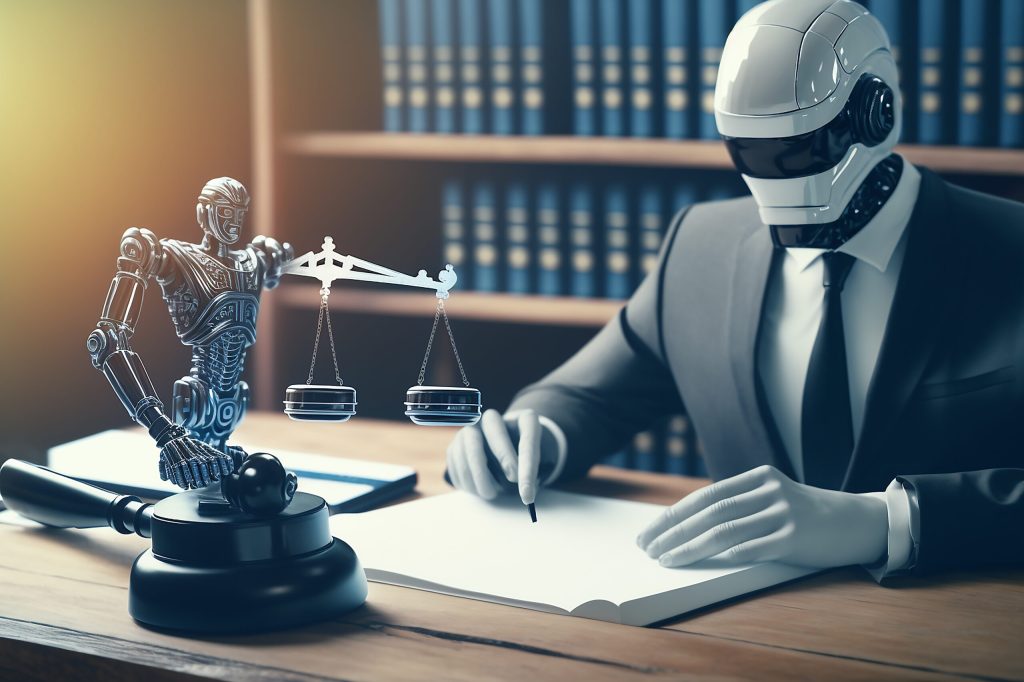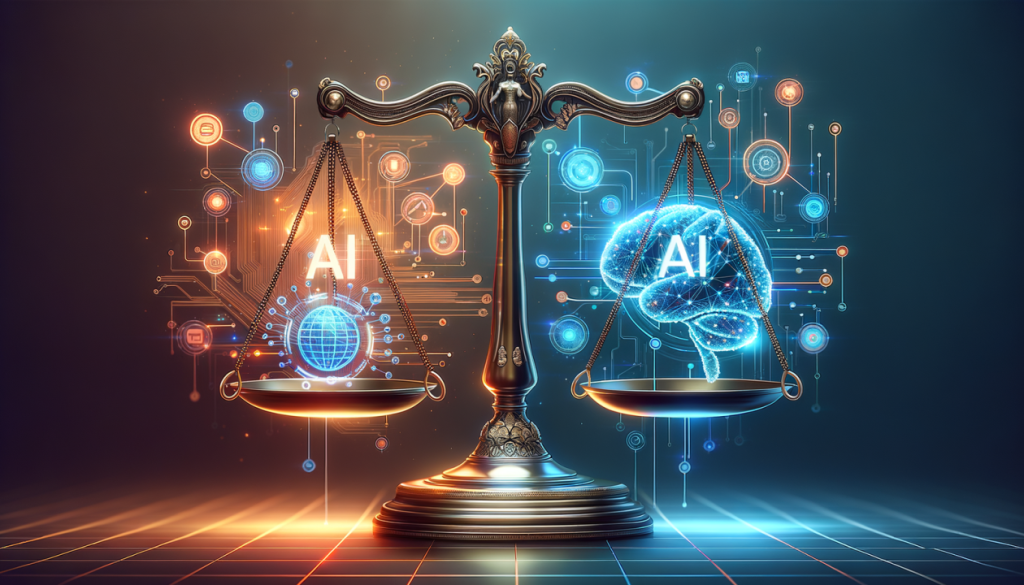AI in Law: How Lawyers Are Using Technology (2025 Overview)
Artificial intelligence is transforming industries worldwide — and the legal profession is no exception. Once seen as too complex for automation, today’s AI-powered tools are helping law firms, attorneys, and legal departments analyze cases, draft documents, and streamline workflows faster than ever before.
In this article, we’ll explore how AI is shaping the modern legal world in 2025, the tools lawyers are using, and the ethical questions that come with it.

🧠 1. AI Legal Research – Faster, Smarter, More Accurate
Traditionally, legal research meant hours spent reading case laws, precedents, and regulations. But AI tools like Harvey.ai, Casetext CoCounsel, and LexisNexis AI are changing that.
These systems can scan thousands of legal documents in seconds, extract relevant information, and summarize findings in plain English.
Benefits include:
- ⏱️ Saves hundreds of research hours per case
- 🔍 Improves accuracy with AI keyword analysis
- 📄 Simplifies complex legal language
Example:
The U.S. firm Allen & Overy now uses Harvey AI (built on GPT technology) to help its lawyers draft legal memos and conduct research, boosting efficiency by 40%.
🧾 2. AI-Powered Contract Review and Drafting
Legal teams handle massive volumes of contracts — from NDAs to employment agreements. Tools like LawGeex, Luminance, and Evisort use AI to automatically review contracts, highlight risks, and even suggest edits.
AI contract management helps by:
- 🚀 Speeding up review cycles
- 🧩 Detecting errors and inconsistencies
- 🧠 Learning company policies to improve accuracy
Example:
Global corporations like Deloitte Legal use Luminance to automate due diligence in mergers and acquisitions, cutting review times by 70%.
⚖️ 3. Predictive Analytics for Case Outcomes
AI is now capable of analyzing previous court rulings and predicting possible outcomes. Platforms like Blue J Legal and Premonition provide data-driven insights into how judges and juries might rule based on historical data.
How it helps lawyers:
- 🎯 Helps determine case strength before litigation
- 💼 Assists in settlement negotiations
- 🕵️ Identifies potential risks earlier
Example:
Law firms in the U.S. are increasingly using Blue J Legal to forecast tax law interpretations and strengthen their legal arguments before court.
📱 4. Chatbots and Virtual Legal Assistants
AI chatbots such as DoNotPay and LawDroid are making legal help more accessible to the public. These tools can draft letters, file small claims, or answer simple legal questions 24/7.
Benefits:
- 💬 Instant client communication
- 💲 Reduced consultation costs
- 👩💻 Increased client satisfaction
Example:
DoNotPay, known as “the world’s first robot lawyer,” helps users contest parking tickets, cancel subscriptions, and even file lawsuits — all via chatbot.
💡 5. AI in E-Discovery
E-discovery (electronic document review) is one of the most time-consuming legal tasks. AI platforms like RelativityOne and Everlaw can now scan millions of documents to identify relevant data for legal proceedings.
Advantages include:
- ⚡ Rapid filtering of large datasets
- 🔐 Secure cloud-based review
- 🧠 AI-driven keyword recognition
This innovation reduces human error and speeds up litigation prep significantly.
🔐 6. Ethical Challenges of AI in Law
While AI has clear benefits, it also raises serious ethical concerns in the legal world:
- ⚠️ Bias in AI models: AI may reflect bias present in historical case data.
- 👁️ Privacy and data protection: Handling sensitive client data securely is vital.
- ⚖️ Accountability: Who’s responsible if AI makes an incorrect legal suggestion?
Legal associations like the American Bar Association (ABA) are working to establish AI ethics guidelines to ensure fairness, transparency, and accountability.
🧭 7. The Future of AI in the Legal Industry
By 2030, experts predict that AI will handle up to 25% of routine legal work, allowing human lawyers to focus on strategy, advocacy, and judgment-based tasks.
Emerging trends include:
- 🤖 AI-powered litigation strategy tools
- 💬 Real-time client communication bots
- 🧠 Legal analytics integrated with firm CRMs
In short, AI isn’t replacing lawyers — it’s enhancing them. The firms that adapt early will lead the next generation of digital law practice.
